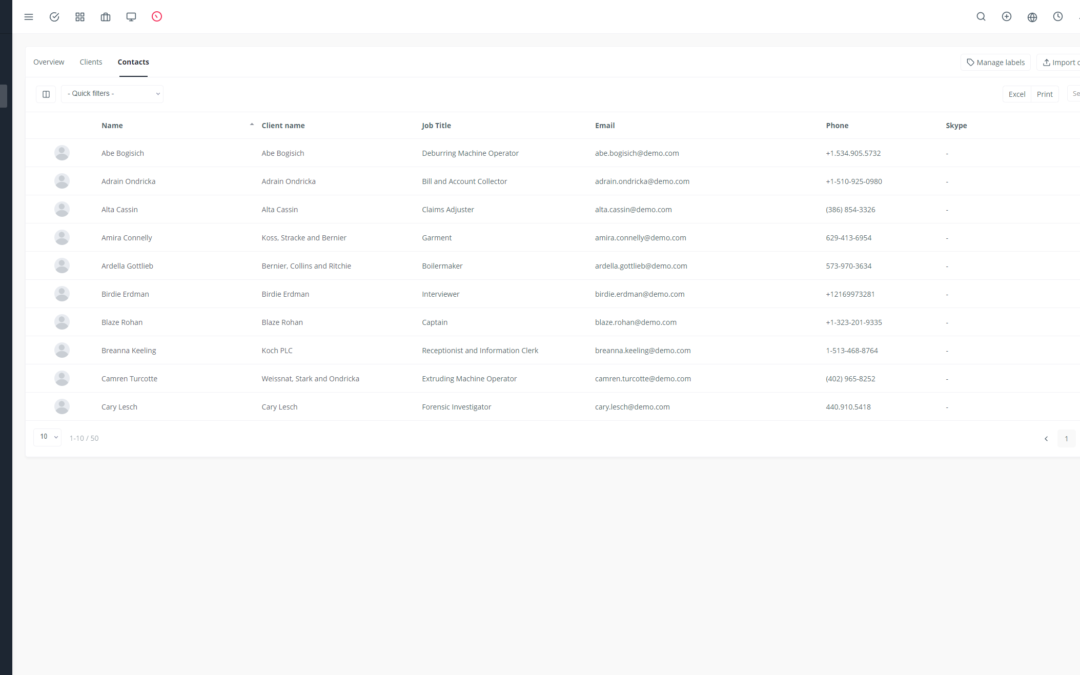Artificial intelligence (AI) is transforming numerous industries, and appointment scheduling is no exception. 🤖 With its automation, analysis, and prediction capabilities, AI offers businesses new opportunities to improve their appointment scheduling processes and optimize their resource management. 📈
1. Automation and Optimization: Smoother and More Efficient Appointments
AI can automate many tedious tasks associated with appointment scheduling. AI systems can:
Manage online appointment requests: via intelligent chatbots that answer customer questions and schedule appointments based on availability. 💬
Analyze customer preferences: to suggest time slots and services tailored to their needs. 📊
Optimize schedules: by considering availability constraints and team workloads. 🗓️
Send reminders and confirmations: via email or SMS to prevent no-shows. 📧
2. Reduced Wait Times and Increased Availability: Improved Customer Service
AI contributes to reducing wait times for customers and increasing service availability. ⏱️
24/7 appointment access: customers can book appointments anytime, without waiting for customer service hours. ⏰
Real-time availability information: customers can instantly see available time slots and choose the one that best suits them. 🗓️
Better resource management: AI helps optimize scheduling and ensure resources are used optimally. 📈
3. Personalization and Communication: An Optimal Customer Experience
AI allows for personalized customer experiences and improved communication:
Personalized appointment suggestions: AI can suggest time slots tailored to the customer’s preferences and history. 🎯
Automated communication: chatbots and virtual assistants can answer customer questions, provide information, and quickly resolve issues. 🤖
Customer data analysis: collected information provides a better understanding of customer needs and improves service offerings. 📊
4. AI Solutions for Every Sector
AI has a significant impact on many industries:
Healthcare: AI systems help schedule medical appointments, manage waiting lists, and optimize hospital resources. 🏥
Finance: AI allows scheduling appointments with financial advisors, managing sales team calendars, and optimizing loan processes. 💰
Services: AI systems can be used to manage appointments in hair salons, beauty centers, restaurants, and other services. 💅
5. Integration and Analysis: Actionable Data
AI can be integrated into existing systems to improve efficiency and data analysis:
Integration with appointment management systems: AI systems can be easily integrated into existing appointment scheduling platforms. 💻
Demand and supply predictions: AI allows anticipating needs and forecasting market trends to optimize resource management. 📈
Data analysis to improve processes: AI can identify weaknesses and inefficiencies in appointment scheduling processes and suggest solutions for improvement. 📊
6. Future Trends and Challenges of AI in Appointment Scheduling
AI continues to develop and evolve rapidly, opening up new possibilities for appointment scheduling:
Conversational artificial intelligence: chatbots and virtual assistants will become increasingly sophisticated and capable of understanding customer needs. 🤖
Predictive analytics: AI systems will be able to predict future customer needs and offer tailored services. 📈
Complete automation: eventually, AI could fully automate the appointment scheduling process, from request to confirmation. 🤖
7. Ethical Implications of AI in Appointment Scheduling
The use of AI in appointment scheduling raises important ethical questions:
Data privacy: it’s important to ensure the privacy of customers’ personal data. 🔒
Algorithm transparency: companies need to be transparent about how AI algorithms are used. 🔍
Discrimination: it’s essential to ensure AI systems don’t create discrimination against certain customer groups. 🚫
In conclusion, AI is a powerful tool that can revolutionize appointment scheduling. By automating tasks, optimizing schedules, and improving customer experiences, AI offers businesses a unique opportunity to increase their efficiency and productivity. However, it’s important to consider the ethical implications of AI and ensure systems are used responsibly and transparently. 🚀

